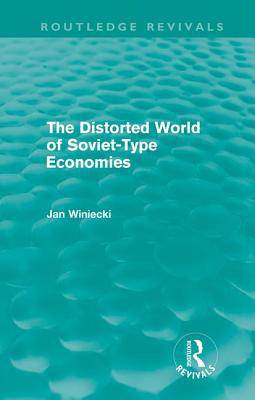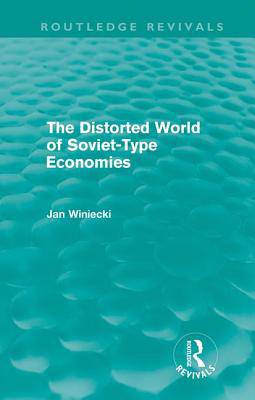
- Retrait gratuit dans votre magasin Club
- 7.000.000 titres dans notre catalogue
- Payer en toute sécurité
- Toujours un magasin près de chez vous
- Retrait gratuit dans votre magasin Club
- 7.000.000 titres dans notre catalogue
- Payer en toute sécurité
- Toujours un magasin près de chez vous
The Distorted World of Soviet-Type Economies (Routledge Revivals)
Jan WinieckiDescription
The Soviet Union and Eastern Europe provide unique examples of large-scale relatively highly developed centrally planned economies. In the 1980s economists in both the East and West began to focus with increasingly critical attention on the economies of the Soviet Bloc, in an attempt to explain why they were performing so poorly in comparison with the economies of the Western powers and the capitalist countries of South-East Asia.
First published in 1988 this substantial and innovative contribution to the critical literature on the economies of the former Soviet bloc is unusual in that its author is equally familiar with both Western and Eastern sources. It highlights, in particular, a discrepancy between the behaviour of individuals in Soviet-style economies and that expected of agents in a market system. It proceeds to outline how the consequent discordance between microeconomic practice and macroeconomic planning generates fundamental economic distortions.
Spécifications
Parties prenantes
- Auteur(s) :
- Editeur:
Contenu
- Nombre de pages :
- 246
- Langue:
- Anglais
- Collection :
Caractéristiques
- EAN:
- 9780415676052
- Date de parution :
- 18-05-11
- Format:
- Livre relié
- Format numérique:
- Genaaid
- Dimensions :
- 140 mm x 216 mm
- Poids :
- 435 g







